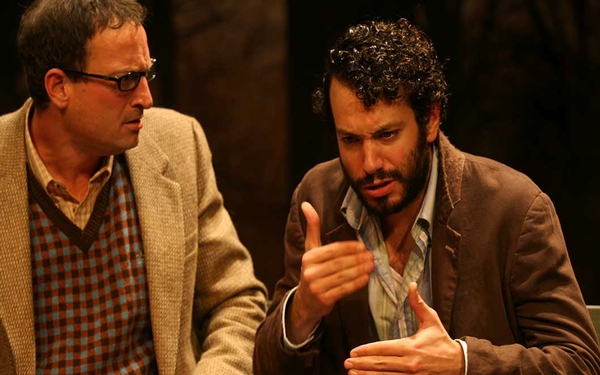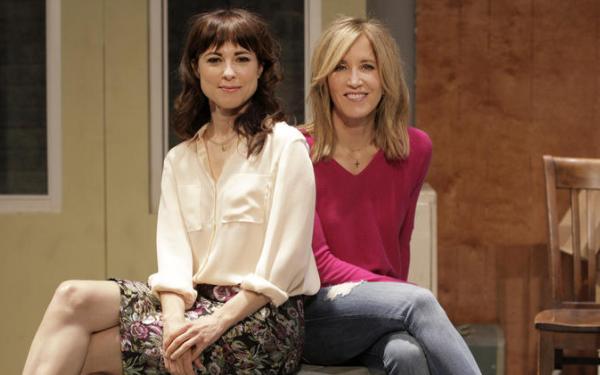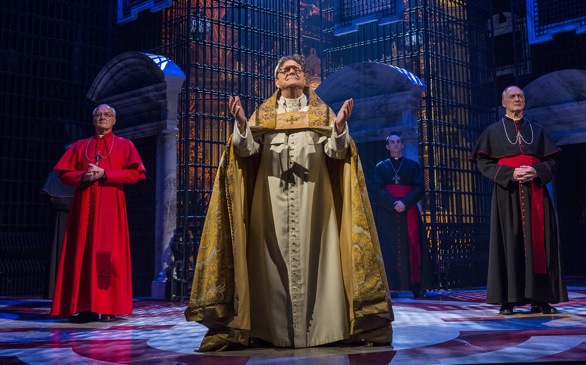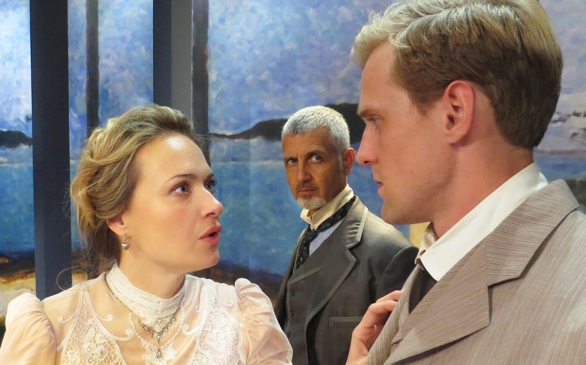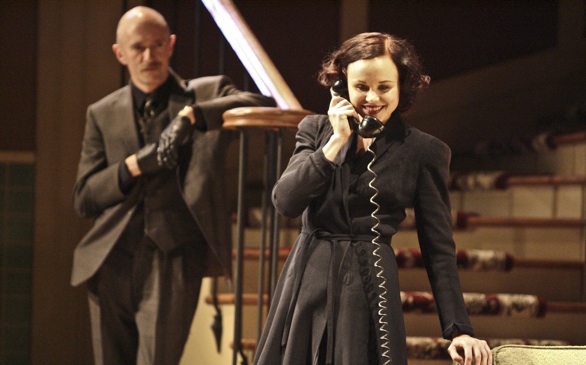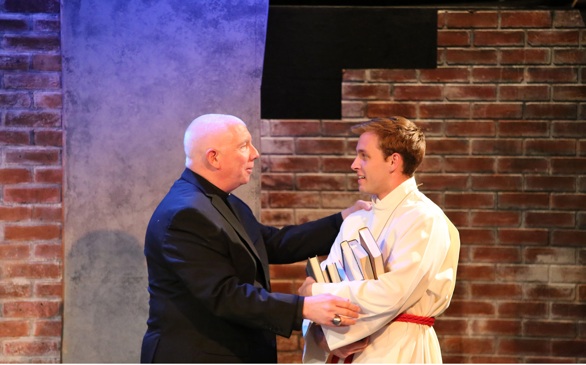Have you ever sat in a room watching something and felt entirely out-of-body? You look around and see others’ reactions and think to yourself, "Am I the only one seeing this?" It happens all too often with me, mainly at buddy comedy flicks or summer action blockbusters, but it’s not something I expected would happen at Jeremy Lelliott’s interpretation of Pulitzer, Emmy and Tony award winning writer Tony Kushner’s "A Bright Room Called Day" – a play about the rise of Adolf Hitler in 1932 Berlin. But that’s exactly what happened.
The play follows Agnes, a semi-successful German actress and her group of left-leaning friends, who slowly start to see their hope for a revolution die as Hitler rises to power.
Her friends, a glamorous actress, a cinematographer, a gay man and an artist who designs communist posters, begin to emigrate, leaving the country. They plead for her to go with them, as, one by one, they see their options dwindle under a Nazi regime. Agnes stays put, refusing to believe her country would leave her in shambles, but then she starts living in fear once she comes to the realization that it was doing just that. Wrought with loneliness, despair and abandonment, Agnes transitions from a lively and outgoing personality to one that’s nearly destroyed by political and personal strife.
The play, originally written and presented in 1985, received great reviews; Kushner directed it himself and his accolades are impressive, to say the least. So when the lights dimmed and the audience quieted down, I was shocked to see the characters that walked onstage: young actors playing young roles, dressed in modernly hipster wardrobe with a certain walk and talk that screamed "L.A.!"
It’s difficult to take heavy subject matter (one especially chilling scene projected photographs of a smiling Hitler onto a wall as Paulinka, our glamorous starlet played by Nicole Monet, sang a sorrowful tune), modernize it without transposing it, and still have it work. Lelliot got creative, but the result was a confused play that couldn’t quite live up the original.
Modernization of a play like this one can not only be forgiven, but is to be expected – not expected were the interpretative dance breaks to artists like Muse, Mumford & Sons, and fun., that felt entirely out of place and disjointed, almost discrediting entirely the play's seriousness. Smoother transitions, less strangely popular music, even a quick change of wardrobe might have helped make the breaks more logical, but sitting through it was awkward. As Muse’s "Uprising" played, I couldn’t help but turn to my peers – yes, this was happening. The audience stared intently, their expressions hard to decipher.
Teya Patt, who played Agnes, was a breath of fresh air. Emotionally convincing, she threw herself into the role and sang 1928 German ballad and now-classic "Mack the Knife" (which fit the play innumerably times better than the indie/folk/rock covers I was slowly getting used to) with a power and sadness that should have encompassed the entire play.
Once and again, it was nice to be reminded that this play was in fact, a piece of art. Soliloquies broke the chronological plot much more beautifully than the unison dance breaks did, and their poetic rhythm and intensity helped to remind the viewer of the weight of it all. Paulinka’s soliloquy was perfectly funny and an appearance by the Devil, named Herr Swetts and played by Bert Rotundo, was scary, intense and entirely accurate. He had, after all, taken up residence in Berlin at the time…
Though far from perfect, it was interesting to see a modern-day take on such a horrendous period in time. A slideshow kept track of dates and times, giving us a little background and history, providing a bit of context. A bit more may have been necessary, but at the very least, I’m now compelled to research the Weimar Republic and German music during the 1930’s.
A Bright Room Called Day was put on by the Coeurage Theatre Company, LA’s Pay What You Want Company at The Lost Studio.



